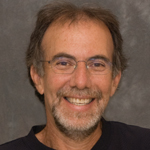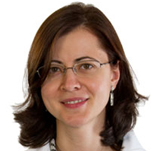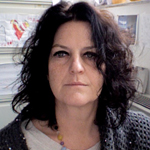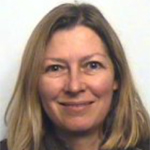13:30 - 14:30
Registration
14:30 - 14:55

University of North Carolina, USA
Tuning the centromere chromatin spring
Dr. Bloom is a Distinguished Professor of Biology at the University of North Carolina at Chapel Hill. His laboratory takes an integrative approach to understand the structural basis of chromosome segregation. Together with physicists and mathematicians they have modeled the organization of ~1 million base pairs of DNA in the centromere. The centromere is the chromosomal site where the kinetochore is assembled, and where centromere DNA is physically coupled to microtubules. The centromere is organized into loops that exert tension within the centromere changing the paradigm from a passive centromere DNA binding site to an active participant in partitioning chromosomes.
14:55 - 15:20

IFOM, Milan, IT
Replication and organization of the vertebrate genome: new molecular insights using a cell-free system
Vincenzo Costanzo graduated in Medicine and obtained his PhD in Molecular Biology at the University of Naples Federico II in 2002. He performed his postdoctoral studies at Columbia University with Jean Gautier, where he developed in vitro systems to study the biochemistry of DNA damage checkpoints. In 2004 he was recruited as group leader at the London Research Institute, Clare Hall Laboratories where he directed the Genome Stability Unit. In 2007 he was nominated Lister fellow and EMBO young investigator and was awarded the European Research Council start up grant. In 2010 he was promoted to tenured scientist. In 2013 he will relocate to IFOM to lead the Vertebrate Genome Stability laboratory. His studies focus on DNA metabolism and DNA damage response in vertebrate organisms.
15:20 - 15:45

IFOM, Milan, IT
Local regulation of recombination at stalled replication forks
Dana Branzei studied at Tohoku University, Sendai, Japan, where she obtained her PhD in Molecular Biology in T. Enomoto's laboratory. During her postdoctoral studies in K. Ohta's laboratory at RIKEN, Wako, Japan, she continued her work, with emphasis on small ubiquitin-related modifier (SUMO) and ubiquitin-mediated regulatory mechanisms controlling chromosome replication and recombination. In 2005, she moved to IFOM, Milan, Italy, as staff scientist, working on the mechanisms controlling intra-S phase DNA repair. From 2008, she became head of the DNA repair laboratory at IFOM. Her laboratory studies the mechanisms of DNA damage response and tolerance pathways and the impact that the chromatin structure/architecture and DNA topology have on the mechanism of DNA repair.
15:45 - 16:15
Coffee-break
16:15 - 16:40

IGH – CNRS, Montpellier, FR
SAMHD1 degrades nascent DNA and prevents replication stress-induced inflammation
Philippe Pasero received his Ph.D. in Cell Biology from the University of Aix-Marseille in 1993. He was a postdoctoral fellow at ISREC (Lausanne, Switzerland) with Susan Gasser, where he studied DNA replication in budding yeast. He joined the lab of Etienne Schwob at IGMM (Montpellier, France) in 1998, where he developed the application of DNA combing to yeast DNA replication. He started his own research group at the Institute of Human Genetics (Montpellier, France) in 2003. Research in the Pasero laboratory focuses on the cellular responses to replication stress in yeast and human cells.
16:40 - 17:05

IEO, Milan, IT
Cell faith after persistent DNA damage: a question of FEAR
Rosella Visintin was born and grew up in Italy. She graduated in Biology and did her PhD at the University of Milan (Italy). She then moved to the Massachusetts Institute of Technology (MIT) in Boston to work as a postdoc with Dr. Angelika Amon. In 2006, she established a research laboratory at the European Institute of Oncology of Milan. Rosella scientific interest lies in understanding the molecular mechanisms controlling sister chromatid segregation. Her work, both as a postdoc (Visintin Science 1997; Visintin Molecular Cell 1998; Visintin Nature 1999) and as an independent researcher (Visintin C. Genes Dev 2008; Manzoni JCB 2010; Roccuzzo NCB 2015) contributed to seminal discoveries in the field of mitosis.
17:05 - 17:30

University of Sussex, Brighton, UK
Smc5/6 and replication stress
My lab at the Genome Damage and Stability Centre, University of Sussex, focuses on the mechanisms of replication restart, how replication and recombination are coordinated and the consequences of mis-regulation for genome instability and cancer. We use a combination of genome-wide and site-specific approaches, mainly in fission yeast, to study the coordination of replication with recombination. We focus on the roles of recombination regulators such as the Smc5/6 complex in replication fork stability. This is essential complex is required for the regulation of recombination and accurate chromosome segregation. Defects in Smc5/6 lead to a novel chromosome breakage syndrome.
17:30
End of works